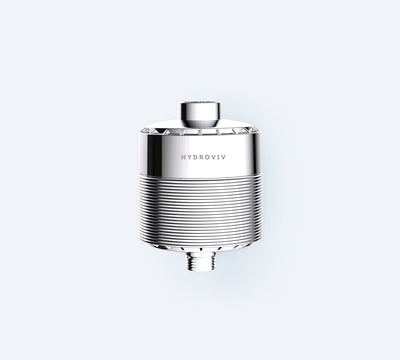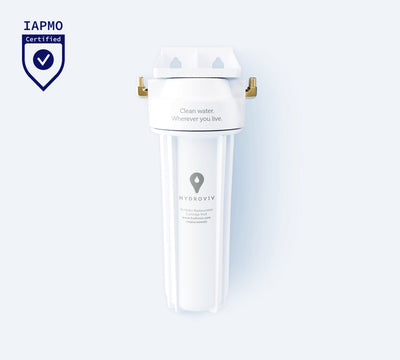Problems We Found In Tucson's Drinking Water
RSSAnalies Dyjak, M.A. | Hydroviv Research Analyst
**Updated April 27, 2021 to include current data
For Hydroviv’s assessment of Tucson, Arizona drinking water quality problems, we collected water test data from Tucson Water and the U.S. Environmental Protection Agency. We cross referenced Tucson's water quality data with toxicity studies in scientific and medical literature. The water filters that we sell at Hydroviv are optimized to filter out contaminants that are found in Tucson’s drinking water.
Where Does Tucson Source Its Drinking Water?
Tucson sources its drinking water from 200 groundwater wells and the Colorado River.
Per and Polyfluoroalkyl Substances (PFAS) In Tucson’s Drinking Water
This years water quality report for Tucson, Arizona included test data from two Per and Polyfluoroalkyl Substances (PFAS): Perfluorooctane-sulfonic acid (PFOS) and Perfluoro-1-hexanesulfonic Acid (PFHxS). Concentrations of PFOS were detected as high as 56 parts per trillion, and averaged 28 parts per trillion. Concentrations of PFHxS were detected as high as 420 parts per trillion and averaged 210 parts per trillion. The Agency for Toxic Substances and Disease Registry (ATSDR) recently recommended setting a Minimum Risk Level of 20 parts per trillion for PFOS, but is still researching the toxicity profile of PFHxS. ATSDR has determined that PFAS are associated with an increased risk of cancer, reproductive problems, and hormonal disruptions. This category of chemicals are “emerging contaminants” which means they are thought to pose a potential threat to human health and the environment, but haven't yet been regulated. PFAS contribute to environmental contamination largely due to the fact that they are highly resistant to the degradation processes, and thus persist for many years in water, air and can enter the food chain via bioaccumulation in certain animal species. Not all water filters are designed to remove PFAS from drinking water. If you'd like to find a water filter that removes PFAS from tap water, check out this Duke/NC State PFAS study.
High Levels Of Arsenic In Tucson Drinking Water
Arsenic is a toxic metal that is known to cause cancer and other health issues. Unlike lead, which distributes into water from plumbing, arsenic comes from the source water itself. It’s important to point out that EPA’s arsenic standard, balances its toxicity against the costs of removing it from drinking water, which means that regulations are very relaxed. The most recent tap water quality report reported arsenic concentrations up to 7.6 parts per billion in Tucson drinking water. Because these levels were detected in Tucson water, the municipality had to make the following disclosure in the Consumer Confidence Report:
"Arsenic is a naturally occurring substance commonly found in groundwater in the southwestern United States. While your drinking water meets EPA’s standard for arsenic, it does contain low levels of arsenic. EPA’s standard balances the current understanding of arsenic’s possible health effects against the cost of removing arsenic from drinking water. EPA continues to research the health effect of low levels of arsenic which is a mineral known to cause cancer in humans at high concentrations and is linked to other health effects such as skin damage and circulatory problems."
Hydroviv highly recommends that anyone with more than 1 part per billion take steps to remove arsenic from their water, especially if they have children.
Chromium 6 In Tucson's Drinking Water
Chromium 6 is a highly toxic metal that is currently unregulated by the EPA. In recent years, Tucson has had a major problem with this dangerous contaminant. Chromium 6 pollution is associated with metal processing, tannery facilities, chromate production, stainless steel welding, and pigment production. The city of Tucson detected levels of Chromium 6 as high as 9400 parts per trillion and averaged 4720 parts per trillion. These levels are nearly 4700 times higher than the concentration determined to have a negligible impact on cancer risk. EPA has acknowledged that Chromium 6 is a known human carcinogen through inhalation, but is still determining its cancer potential through ingestion of drinking water. Lung, nasal and sinus cancers are associated with Chromium 6 exposure. Ingestion of extremely high doses of chromium 6 compounds can cause acute respiratory disease, cardiovascular, gastrointestinal, hematological, hepatic, renal, and neurological distress which may result in death.
Lead In Tucson Drinking Water
Lead enters Tucson's tap water through older lead service pipes and lead-containing plumbing. When corrosion control measures put in place by the municipality fail (like what recently happened in Flint, Michigan), lead leaches into the drinking water, and can reach dangerous levels. Currently, 10% of samples analyzed for lead in Tucson's water are over 0.9 parts per billion. Though currently in compliance with federal regulations, EPA and CDC both acknowledge that there is no safe level of lead, and federal regulations do not take into account levels measured at an individual tap. The American Academy of Pediatrics recommends that any taps used to serve children have lead levels no higher than 1 part per billion. Hydroviv Undersink filters are NSF/ANSI 53 certified to remove lead from drinking water.
Herbicide Runoff Detected In Tucson Tap Water
In 2020, Tucson's tap water quality tested positive for low levels of the herbicide atrazine .
Disinfection Byproducts (DBPs) In Tucson Drinking Water
DBPs are a category of emerging contaminants that form when chlorine-based disinfectants react with naturally-occurring organic matter. Although these chemicals are not currently regulated very well, the EPA has admitted that they are associated with an increased risk of bladder cancer, as well as kidney, liver, and central nervous system problems.
Still Have Questions About Tucson Drinking Water?
Hydroviv is a water filtration company that uses water quality data to optimize water filters for each customer's water. The contaminants that we list above are what we consider to be major “points of emphasis” that we use to build water filters that are built specifically for Tucson, but all of our our filters provide broad protection against a wide range of contaminants (including lead).
Please Share This Tucson Tap Water Quality Article On Social Media With Anyone You Think Would Benefit From The Information!
Recommended Articles For You
What Do I Need To Know About Arsenic In My Drinking Water
How Do I Remove Chromium 6 Contamination From My Drinking Water?
Disinfection Byproducts In Your Drinking Water




